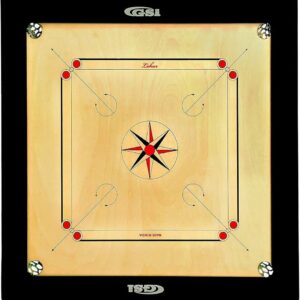The Effects of Stress and Relaxation on Our Gaming Habits: How Bruno Fits In
Casinos, slot machines, and online gaming have become increasingly popular in recent years, with many people turning to these forms of entertainment as a way to unwind and relax after a long day. But what role do stress and relaxation play in our gaming habits, and how can we understand the impact of these factors on our behavior? In this article, we’ll explore the relationship between stress, relaxation, and gaming, using Bruno’s story as brunocasinofr.net a case study.
Stress and Gaming: The Escapism Factor
When people are stressed or anxious, they often turn to activities that provide an escape from their daily worries. For some, this might be reading a book, watching TV, or taking a walk. But for many others, gaming is the preferred way to unwind. Online casinos, slot machines, and video games offer a welcome respite from reality, allowing players to immerse themselves in virtual worlds and forget about their troubles.
Research has shown that people who are experiencing high levels of stress are more likely to engage in impulsive behaviors, including excessive gaming. This is often referred to as "escapism," where individuals use gaming as a means of temporarily escaping from the pressures and demands of everyday life.
But while escapism can provide short-term relief, it can also have negative consequences. Excessive gaming has been linked to problems such as addiction, social isolation, and decreased productivity. So how do we distinguish between healthy gaming habits and problematic ones?
The Role of Relaxation in Gaming
On the other hand, relaxation is a key factor in promoting positive gaming experiences. When people are relaxed and calm, they’re more likely to engage in activities that bring them joy and fulfillment. In the context of gaming, this can manifest as a desire to explore new games, try out different genres, or socialize with friends online.
Relaxation also plays a crucial role in helping us manage stress and anxiety. When we’re feeling calm and centered, we’re better able to regulate our emotions and make rational decisions. This is particularly important for gamers, who may be tempted by the allure of winning big or trying their luck at the slots.
Bruno’s Story: A Case Study
Meet Bruno, a 35-year-old marketing executive from London. Like many people in his profession, Bruno works long hours and often finds himself feeling stressed and burnt out. However, he’s also an avid gamer and has been known to spend several hours a night playing online slots or video games.
Initially, Bruno used gaming as a way to escape the pressures of work. He’d log on after a long day, and the virtual worlds would transport him to a place where his worries seemed far away. But over time, he found that gaming was becoming an increasingly important part of his daily routine.
Bruno’s friends and family started to notice changes in his behavior, too. He became more withdrawn and isolated, preferring the company of his online gaming community to real-life social interactions. His job performance also began to suffer, as he struggled to maintain a healthy work-life balance.
It wasn’t until Bruno hit rock bottom – he’d lost several thousand pounds on the slots and was struggling to pay his bills – that he realized he needed help. With the support of his loved ones, Bruno joined a therapy group for problem gamblers and began to address the underlying issues driving his behavior.
The Impact of Stress and Relaxation on Gaming Habits
Bruno’s story highlights the complex relationship between stress, relaxation, and gaming habits. While stress can drive people to engage in impulsive behaviors like excessive gaming, relaxation is essential for promoting positive gaming experiences and preventing addiction.
So what can we learn from Bruno’s experience? Firstly, it’s essential to recognize that gaming can be both a source of enjoyment and a potential problem. If you’re struggling with your gaming habits or are concerned about someone else’s behavior, seek help and support.
Secondly, prioritize relaxation and stress management in your daily life. This might involve activities like meditation, exercise, or spending time in nature. By cultivating a healthy balance between work and play, you’ll be better equipped to manage stress and make informed decisions about your gaming habits.
Lastly, remember that it’s okay to take breaks from gaming and prioritize other aspects of your life. Whether it’s pursuing a hobby, nurturing relationships, or simply taking time for self-care, there’s no shame in stepping away from the virtual world and reconnecting with reality.
Conclusion
The relationship between stress, relaxation, and gaming habits is complex and multifaceted. While escapism can provide temporary relief from our troubles, excessive gaming can have serious consequences. By understanding the role of relaxation in promoting positive gaming experiences and preventing addiction, we can cultivate healthier relationships with gaming and prioritize our well-being.
As Bruno’s story demonstrates, it’s never too late to seek help or make a change. Whether you’re struggling with your gaming habits or simply looking for ways to manage stress and promote relaxation, there are resources available to support you.
So next time you log on to your favorite online casino or slot machine, remember the importance of balance and self-care. By prioritizing relaxation and taking control of your gaming habits, you’ll be better equipped to navigate the ups and downs of life – both in and out of the virtual world.




